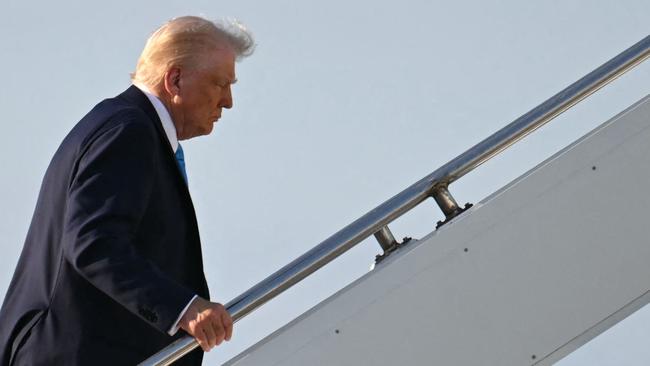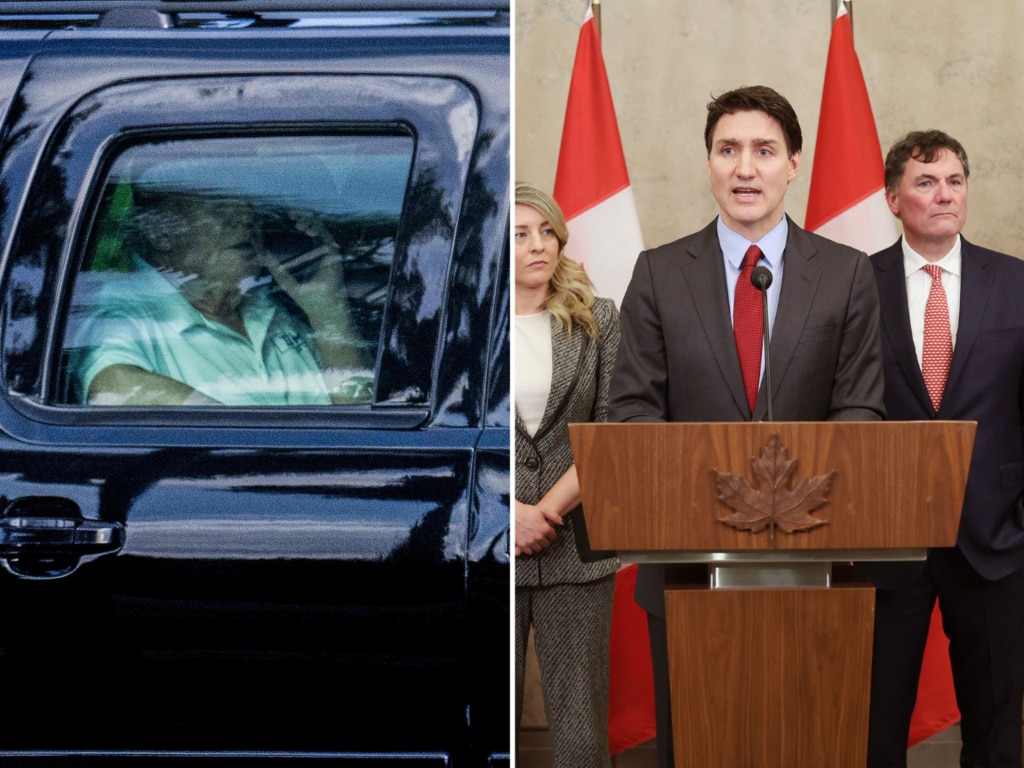Australia needs to craft its own response to Donald Trump’s tariffs

This implies naivety or cynicism: naivety to think the worst excesses of the President’s economic agenda could be avoided; cynicism to believe an elected politician would brazenly junk a policy on which he so clearly and consistently campaigned.
What does it mean for Australia, and how should we respond? Canberra will naturally make the case for favourable treatment and continued access to US markets. We are a key ally, and the US runs a bilateral trade surplus with Australia.
But this won’t be the main game, even for Australia.
As RBA deputy Andrew Hauser has pointed out, Australia’s exports to the US are small – among the lowest in the developed world as a share of GDP.
But the true impact of President Trump’s trade policies on Australia are potentially significant, and will come via China.
Previous work by the RBA, co-authored by Gianni La Cava (now at the e61 Institute), has shown that Australia’s export exposure to the US is much greater when measured on a value-added basis.
That is, if we take account of the full value chain, a high share of our resource exports to China end up subsequently exported to the US as finished (or more value-added) products.

On a value-added basis, the US becomes our third-largest export market, behind China and Japan. A trade war between the US and China is overwhelmingly likely to be bad news for Australia.
Work done by Warwick McKibbin and others for the Washington-based Petersen Institute last year highlights this point. They modelled the effect of (admittedly larger) US tariffs on exports from China. It’s a clear act of self-harm: the US economy would suffer a hit to GDP and hours worked, and a spike in inflation. But the modelled impact on Chinese GDP and employment is much greater. Australia would find it hard to avoid flow-on effects, including via falls in the price of key exports such as iron ore.
At least Australia’s policy response is within our own control.
The worst response would be unthinking mimicry. Australia has nothing to gain from raising our own tariffs on imported goods. That would tax consumers and hurt the economy overall, and could not influence the policies of large countries such as the US or China. It was a mistake to think we had to replicate Joe Biden’s industry subsidies via our own mini version of the Inflation Reduction Act.
We would only compound the damage if we were to copy and paste the latest protectionist offering from the US.
Better to think for ourselves.
A global trade war would be equivalent to a terms-of-trade shock.
We will need some hard-headed realism rather than easy answers.
Our flexible exchange rate can help cushion the impact of any reduction in our terms of trade.
We will need to reduce the regulations faced by new firms, such as licensing and planning constraints.
We will need continued labour market flexibility so that pay and conditions are set primarily via agreement at the firm level. And we should look to remove barriers to service exports. The cap on international students would be a candidate.

Ideally, our fiscal position would be stronger than it is. Any fall in the price of our exports (a lower terms of trade) will be felt through reduced tax revenue and a deteriorating budget position. Unfortunately, it is not at all clear that fiscal stimulus would be the right response to such an income shock. More likely we would need hard decisions, on spending and tax, to restore the budget to balance over time.
It has been claimed that Australia has historically been a great manager of adversity and a poor manager of prosperity. But in truth, Australia has fared best in periods of global growth and openness: the middle part of the 19th century, the post-war expansion, and the three decades from the early 1990s. In each chapter, trade has been central: with Britain, Japan and China respectively.
The inter-war period was, by contrast, a time when the world turned inward; when a previously open, stable world order fragmented and collapsed.
Our policy mix included increased tariffs, labour market regulation and some fiscal adventurism, like a flirtation with debt default by New South Wales. Our economic performance suffered, with flatlining average incomes between 1914 and the late 1930s.
Australian policymakers have spent much of the past decade grappling with the challenge that our biggest trading partner has not been a strategic ally. Now our greatest strategic ally is pursuing an economic policy that could indirectly do us harm.
Whatever domestic enthusiasm exists for other aspects of President Trump’s economic agenda, we cannot ignore the potential damage from these decisions on trade. We should not import bad economic ideas, but craft a policy response that is hard-headed and distinctively our own.
Michael Brennan is CEO of the e61 Institute and a former chair of the Productivity Commission.





The market reaction to Donald Trump’s tariffs on China, Canada and Mexico suggests many were taken by surprise.